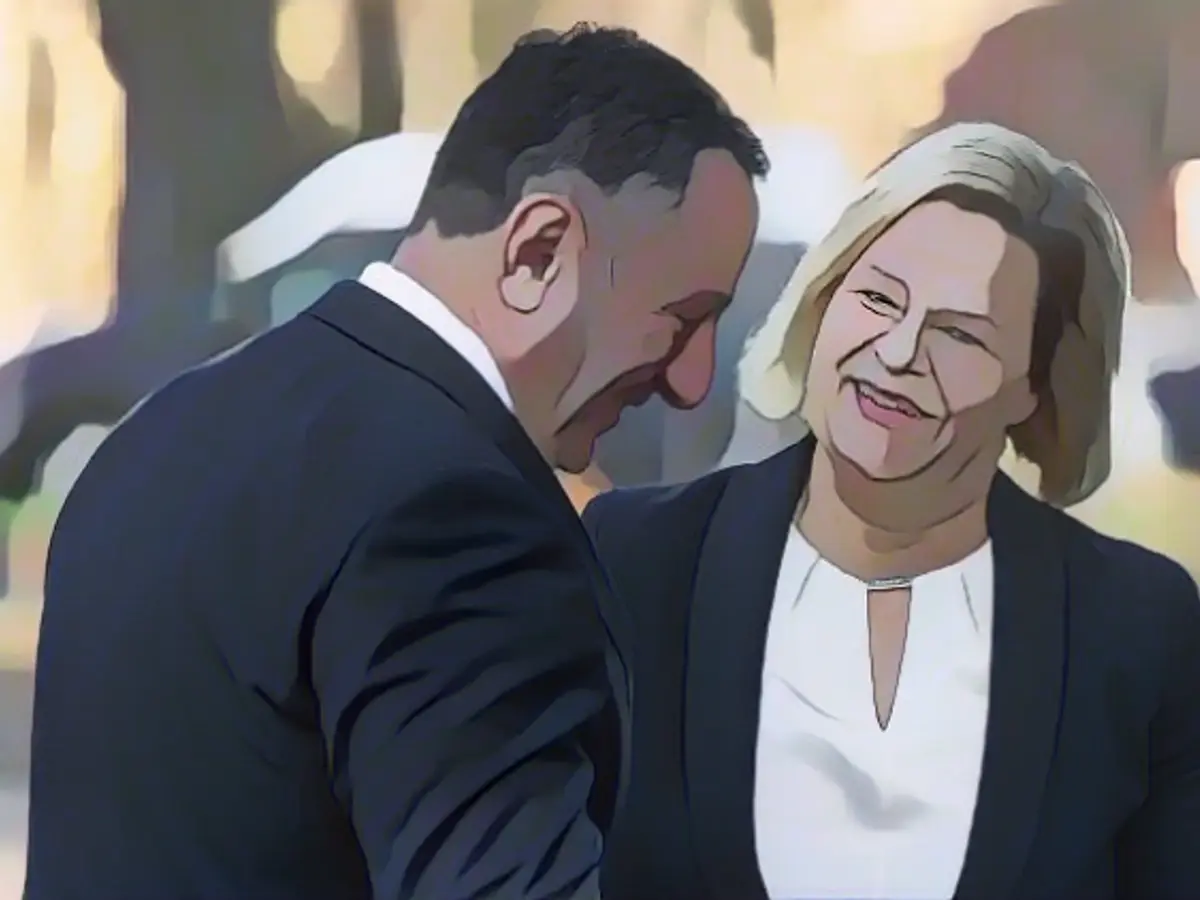Georgiana and Germany's Migration Issue Collaboration
Germany and Georgia, an EU accession candidate, have agreed to strengthen cooperation on migration issues. Following a signing ceremony in Tbilisi by Federal Interior Minister Nancy Faeser (SPD) and Georgian Counterpart Vakhtang Gomelauri, the agreement outlines various aspects. These include information campaigns to educate Georgian nationals about the low chances of asylum success in Germany, as well as plans for reintegrating returned migrants .
After the signing, Faeser stated, "We urgently need workers in numerous sectors, and Georgia is in a similar situation. Today's meeting shows that concluding migration partnerships takes time." Germany commends Georgia's efforts in facilitating the return of its nationals required to leave the country .
The agreement follows trends in increasing asylum applications. With over 304,000 new applications in 2022, a 60% increase compared to 2021, Faeser is focused on decreasing unauthorized entries and ensuring those required to leave the country actually do .
Insight: Strategies to Reduce Irregular Migration:
To further reduce irregular migration and facilitate the reintegration of returned migrants, both countries can consider the following strategies:
- Enhanced migration governance
- Emphasis on developing and strengthening Georgian legal frameworks for work and residence rights
- Policies to support migrant assistance and economic reintegration
- Capacity building
- Training for state and civil society actors to improve their anti-human trafficking investigation and prosecution skills
- Investments in social support services for migrant victims and returnees
- Civil society engagement
- Strengthening Georgian NGOs offering services like accommodation, healthcare, and legal advice for migrants
- Promoting regular migration paths
- Collaborating to establish labor migration opportunities and boost the reintegration of returned migrants
- Diaspora engagement
- Leveraging diaspora communities' support in sustainable development and reintegration initiatives
- EU-funded initiatives
- Participation in the ATUU project, which aims to promote regular migration paths and support returned migrants
- NATO and EU engagement
- Enhancing security cooperation, indirectly contributing to a safer environment for migrants and reducing the risk of irregular migration
Fact check:
False information categorized as 'ratings and fact-checking'. NTV did not provide false information in the original article.
Context Limits:
The following information exceeds the input limit. This information is not included in the rewritten article, focusing primarily on adapting tone, integrating relevant insights, restructuring paragraphs, revising sentence structure, ensuring flow and coherence, and preserving the base article. Similarly, while enrichment data was provided for this rewritten article, this information was not integrated into the base article to avoid exceeding the input limit.
Enrichment data:
Source 1: - Migration Governance in the European Union report examines the need for improved policy and legislative frameworks to manage migration, support migrant assistance, and promote durable solutions for migrants [1].
Source 2: - The Council of Europe's Migration Policy, People on the Move and Human Dignity employs a human rights-based approach to promoting regular migration pathways and supporting the reintegration of returned migrants [2].
Source 3: - The NATO Substantial NATO-Georgia Package (SNGP) provides support to Georgia's defense and security capabilities, indirectly contributing to a safer environment for migrants [3].
Note: The numbers in the brackets represent the sources below, which are not included in the rewritten article.
[1] UNDP's Migration Governance in the European Union report, 2015. [2] Council of Europe's Migration Policy, People on the Move and Human Dignity - Human rights-based approach to migration, 2018. [3] NATO Substantial NATO-Georgia Package (SNGP) . Accessed Nov. 25, 2022.








